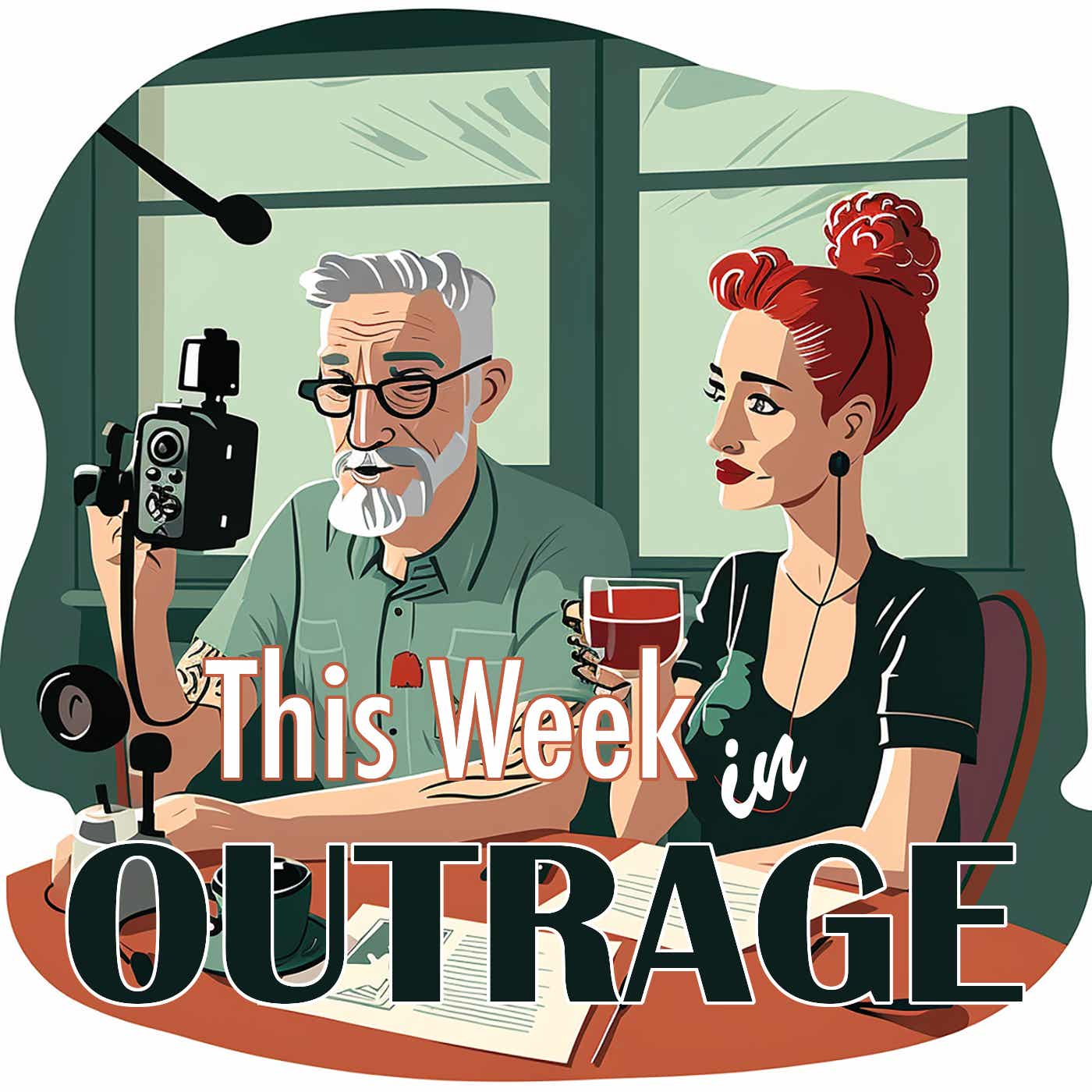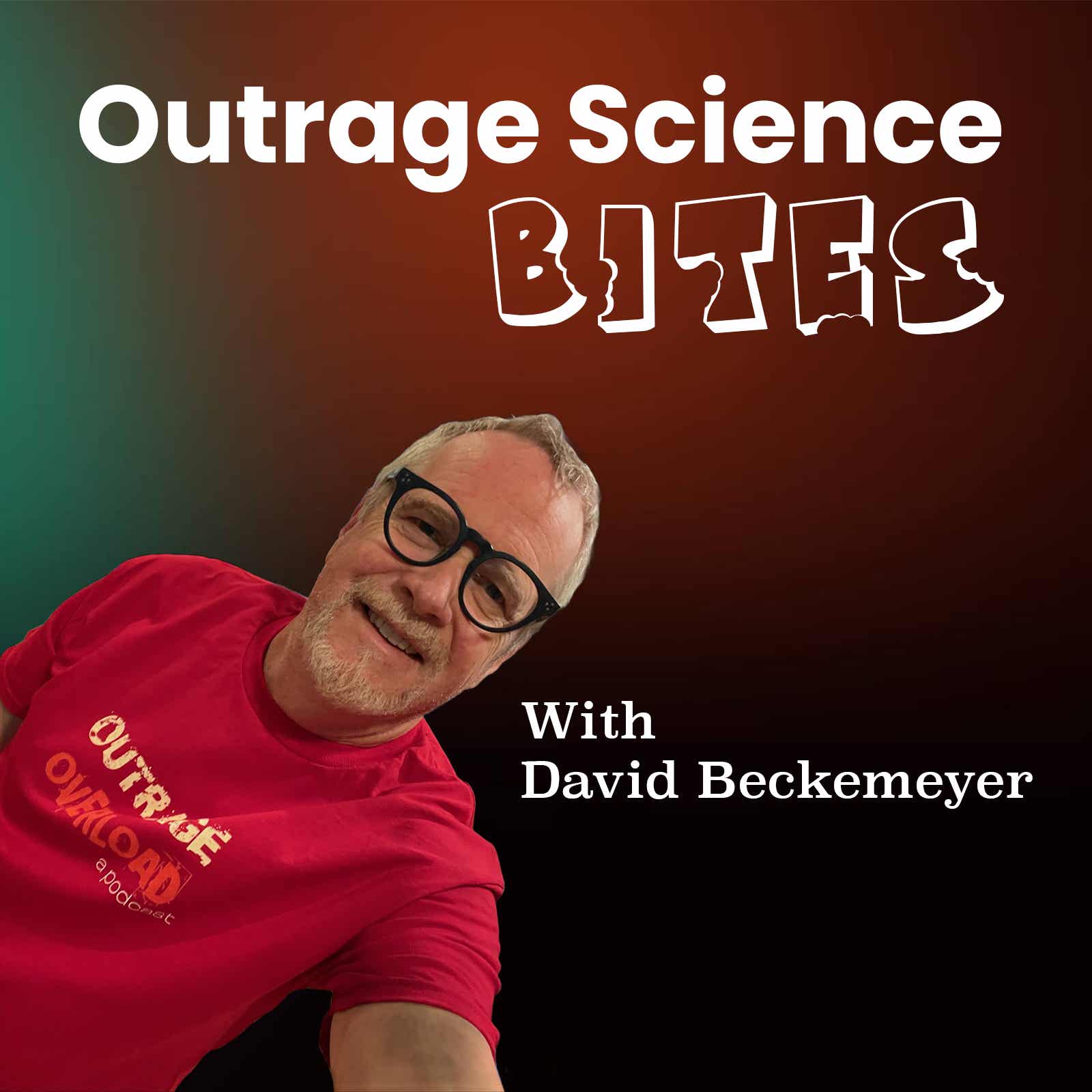
Outrage Overload: Rethinking politics, division, and media
If you're angry, frustrated, or scared about the state of politics and media and looking for thoughtful, balanced discussions, this podcast is for you. About 30 minutes every few weeks. It will change your life.
Outrage Overload explores the extreme polarization and political bias dominating politics and media today. We dive into the anger and outrage that drive divisions between people, distort the news, and fuel political violence. Each episode features leading scientists, researchers, authors, and community leaders tackling topics like outrage fatigue, toxic polarization, extremism, healthy conflict, disinformation, social media's role in outrage, and the influence of technology and artificial intelligence.
Join us to rediscover humanity in your rivals, improve your mental health, and find practical strategies to feel less stressed and more in control in a world fueled by outrage.
Outrage Overload helps listeners with critical questions about outrage culture, political polarization, misinformation, and media manipulation—offering science-based insight, expert interviews, and practical tools to stay grounded in a divided world.
If you’ve ever asked yourself…
• How can I stay politically informed without feeling outraged or exhausted all the time?
• Why is political polarization getting worse, and what can we do about it?
• What exactly is outrage culture, and how does it manipulate us?
• How do I talk about politics without it turning into a fight?
• Am I being misled by the media? How can I tell?
• What’s the psychological toll of living in an outrage-driven media environment?
• How can I build critical thinking skills to make sense of today’s news?
• What role does social media play in fueling outrage and misinformation?
• Is it possible to care about politics without losing your mind?
• What practical tools or insights can help me deal with toxic politics and media?
…then this is the politics show you didn’t know you needed.
Join host David Beckemeyer—science communicator and founding CTO of EarthLink—as he explores the mechanics of outrage, speaks with experts in psychology, media, and political science, and equips listeners with strategies for navigating today’s high-conflict culture with emotional resilience, critical thinking, and civil discourse.
Outrage Overload: Rethinking politics, division, and media
48. The complex psychological effects of Twitter use - Victoria Oldemburgo de Mello
How Twitter Impacts Our Well-being
We explore the intricate relationship between Twitter and society with Victoria Oldemburgo de Mello, a fourth-year PhD student at the University of Toronto. Victoria's research sheds light on the psychological effects of Twitter use, exploring how the platform shapes well-being, mental health, and social connections in a polarized digital landscape.
Our conversation unpacks the ways in which social media can amplify feelings of belonging or deepen divides, depending on how it’s used. Victoria discusses how specific Twitter behaviors—whether fueled by outrage or driven by engagement algorithms—can influence mental health, political polarization, and even perceptions of truth in the news. The challenges of pinpointing causality in social media research are a recurring theme, as we examine the subtle interplay between user motivations, online interactions, and societal outcomes.
Listeners will also find practical insights into navigating Twitter responsibly, balancing its potential for connection with its risks to mental health and societal cohesion. From understanding the psychology behind angry tweets to reflecting on how social media can distort political realities, this episode offers a thoughtful lens on the broader impact of platforms like Twitter.
Victoria wraps up by sharing her vision for future research, exploring the evolving role of social media in shaping public discourse and individual well-being. Whether you’re curious about the psychology of social media, the effects of media outrage, or the link between social media hype and political bias, this episode provides a compelling and nuanced take on the digital age.
Show Notes:
https://outrageoverload.net/
Contact me, David Beckemeyer by email outrageoverload@gmail.com. Follow the show on Instagram @OutrageOverload. We are also on Facebook /OutrageOverload. Check out our Subtstack https://outrageoverload.substack.com
HOTLINE: 925-552-7885
Got a Question, comment or just thoughts you'd like to share? Call the O2 hotline and leave a message and you could be featured in an upcoming episode
If you would like to help the show, you can contribute here. Tell everyone you know about the show. That’s the best way to support it.
Rate and Review the show on Podchaser: https://www.podchaser.com/OutrageOverload
Also check out our companion podcasts, This Week in Outrage and Outrage Science Bites.
Intro music and outro music by Michael Ramir C.
Many thanks to my co-editor and co-director, Austin Chen.
Podcasts we love
Check out these other fine podcasts recommended by us, not an algorithm.

Utterly Moderate Podcast
Connors Institute
The How To Podcast Series - Revolving Guest Co-Hosts, Podcast Tips and A Community for Podcasters
Dave Campbell, Ontario Canada
This Week in Outrage
David and Lisa Beckemeyer
Outrage Science Bites
David Beckemeyer
Long Covid, MD
Dr. Zeest Khan
Bill Monty's Guide For Getting Older
Bill Monty
